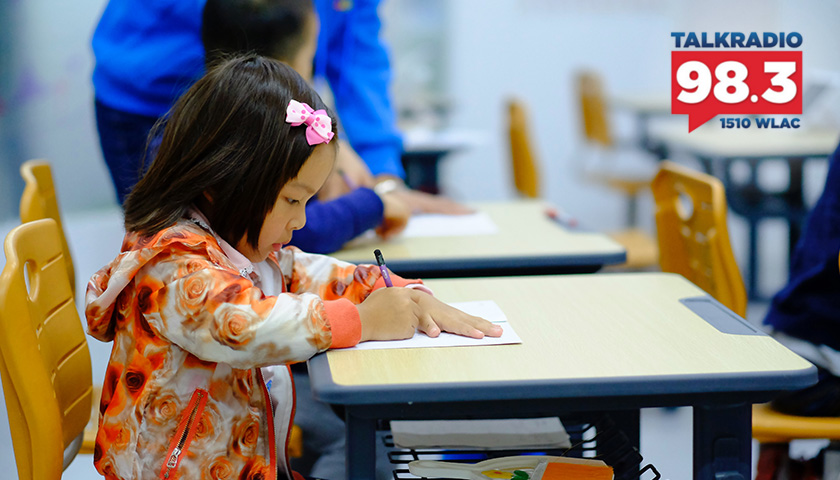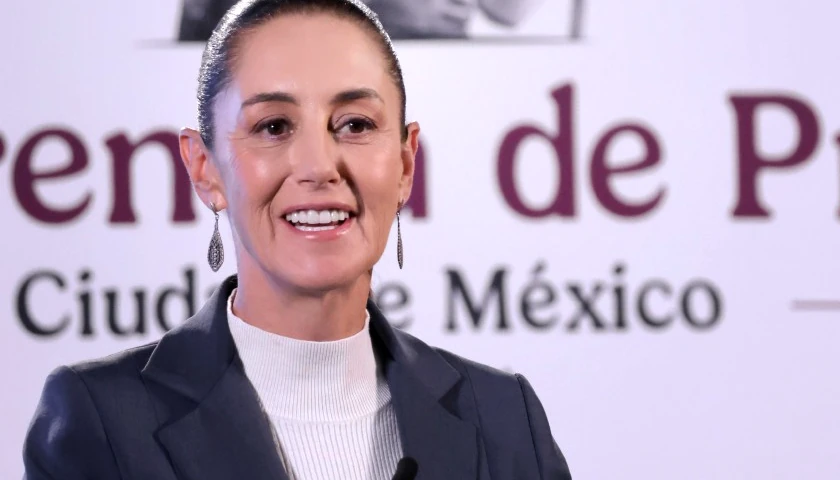Live from Music Row Friday morning on The Tennessee Star Report with Michael Patrick Leahy – broadcast on Nashville’s Talk Radio 98.3 and 1510 WLAC weekdays from 5:00 a.m. to 8:00 a.m. – host Leahy welcomed National Opportunity Project Founder Patrick Hughes to the newsmaker line to discuss the misallocation of millions of COVID dollars to private schools throughout the country.
Leahy: I’m going to bring in our next guest who’s got a very interesting point of view on that and some facts to share with us: Patrick Hughes, the president and founder of the National Opportunity Project. Patrick, welcome to The Tennessee Star Report.
Hughes: Michael, thank you so much for having me. I appreciate it.
Leahy: It’s hard to believe, but let me just try. Is it true, as you report, that $736 million designed for K-12 public schools aid by the federal government never reach the classroom? I can’t believe that. Is that true?
Hughes: So it’s true, it’s actually private schools. The public schools actually did very well. They got billions upon, billions upon billions of dollars. The private schools were allocated $5.5 billion. But it was just for mostly COVID mitigation stuff. PPE, ventilation, and temporary classrooms.
And what happened was it was really hard for the money to get out, and as a result, under the program, the way that the program was designed, it wasn’t designed very well, the money, if it didn’t get out to the private schools, would revert back to the governors in the states.
And at National Opportunity Project, we did this massive study, over months splaying all over the country and learned that $36 million of that money did not make it to private schools and is still sitting out there. For example, in Tennessee, they were allocated $140 million for a private school.
There are over $100 million left that haven’t made their way to the private schools. And so what we’re trying to do is educate parents and advocates and school leaders at private schools across the country to understand that this money is out there.
For example, in Tennessee, over $100 hundred million that could go to private schools to make up for the incredible amount of lost learning during COVID. When we look at this, Michael in the rearview mirror, the policies, truly the education policies as are related to K-12 kids in school closures, in Zoom classes, are some of the worst public policies our country has seen, certainly in my lifetime.
And what we need to do is figure out a way to get these kids caught up in their education and to help them with any mental health problems they have as a result of this. And so there’s $736 million out there for private school kids that can help get that done.
Leahy: Some of the money that didn’t go to private schools in Oregon, was funded by Congress, the $736 million. In the state of Oregon, this is how they used the extra money they got back. They used $1.6 million to “moonshot for equity.”
That was called a multi-year initiative aimed at “eliminating equity barriers” in several state colleges. That doesn’t sound to me exactly what Congress intended for the use of these funds.
Hughes: Isn’t it incredible when you allow the governors in these, in individual states, to make the decisions on where this funding should go, they make decisions like that, right?
They’re under public pressure, they’re under pressure from their constituents or from special interests, and they start doing things like that. One million six hundred thousand dollars for diversity, equity, and inclusion programs when this money is supposed to go to educate young kids who lost so much math, science, reading, and history during the time of the COVID learning loss.
The good news, Michael, and I think we’ve all recognized this since COVID, this is sort of the age of parent empowerment. You’re seeing parents across the country become organized and really take stock, whether it’s public or private schools, in their kids’ education because they saw what the disaster of COVID education policy was.
They also were able to resume classes and pay a lot of attention to their kids being at home. to see exactly what’s being taught and how it’s being taught. So they’re activated in ways they’ve never been activated before.
So rarely is there an opportunity where there’s this kind of money, $736 million, where parents can get activated and try to figure out a way for that money, which is already allocated. It’s already out there. You don’t have to raise it, you don’t have to tax people for it.
It’s already been spent. And to allow them to get money for their kids so that they can make up for all the COVID loss. And I think parents are empowered to do that. And at National Opportunity Project, you can go to nationalopportunity.org and take a look at the report and look at what happened in your state and ways to figure out how to get this money to kids so they can get educated and, and catch up on the education they lost.
Leahy: Tell us a little bit about National Opportunity Project. What is the main idea behind it? How long has it been operational, and how did you decide to come about and do this?
Hughes: We founded it a few years ago. It’s a national government watchdog organization that is designed to make sure that our government is serving the people and not the other way around. We’ve spent a lot of time focusing on this particular project because we’re passionate about kids being educated across the country. We have also focused a lot on indoctrination policies in public schools, both in terms of hiring teachers and how teachers are being hired now in public schools.
There’s sort of a political or ideological test for hiring them and also how kids are being indoctrinated through content. The whole idea is that we think there’s a leftward movement in education policy at the public schools in particular, but some of the private schools that are designed not teach these kids how to think but tell them what they should think.
At the National Opportunity Project, we’re doing massive investigations to combat that reality that’s going on. I think you’re gonna see in both public policy and politics over the next year and a half, as we lead up to the 2024 presidential election, that these issues are gonna be extremely salient in determining which direction our country goes and what we’re gonna decide to do for school children in the country.
Listen to today’s show highlights, including this interview:
– – –
Tune in weekdays from 5:00 – 8:00 a.m. to The Tennessee Star Report with Michael Patrick Leahy on Talk Radio 98.3 FM WLAC 1510. Listen online at iHeart Radio.
Photo “Young Student” by Jerry Wang.








